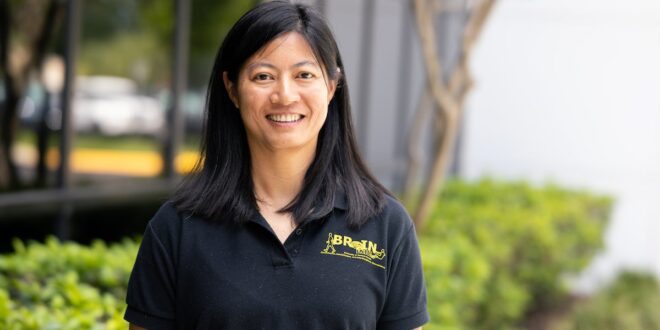Influence of Women in STEM at the BRaIN Lab
The Biomechanics, Rehabilitation, and Interdisciplinary Neuroscience (BRaIN) Lab at UCF is dedicated to understanding the coordination between the brain and body in controlling human movement. Researchers in the lab utilize electroencephalography (EEG) technology to measure brain electrical activity during various movements. However, the impact of the lab goes beyond scientific research as it plays a crucial role in nurturing the next generation of women in science and technology.
Supporting Women in STEM
Helen Huang, an associate professor in mechanical and aerospace engineering, serves as the principal investigator of the BRaIN Lab. Being well-aware of the gender disparity in STEM fields, Huang emphasizes the importance of creating a supportive network for women in STEM. Surrounding oneself with individuals who encourage and foster one’s interests is crucial. Huang points out that there are numerous women in STEM who are passionate about encouraging more women to pursue careers in these fields.
Research at the BRaIN Lab
Huang actively engages student researchers in human subject experiments within the BRaIN Lab. These experiments involve analyzing extensive sets of data related to brain, muscle, and body activities during complex balance and walking tasks. By studying brain electrical activity, researchers can gain valuable insights into the activation of different brain areas during movement. This knowledge can contribute to developing advanced robotic devices and rehabilitation methods for individuals with impaired movement.
Lindsey Lee, who recently graduated with a bachelor’s degree in mechanical engineering, discovered her passion for sports, movement, and mathematics through her involvement in the BRaIN Lab. She conducted research on analyzing people’s walking patterns in response to perturbations on a treadmill and even published her findings in the journal Gait & Posture. Lee’s experience in the lab has reinforced her interest in the field and inspired her to pursue a master’s degree in biomedical engineering while continuing her research at the BRaIN Lab.
Inspiring Women in Engineering
Shayla Hoa, a sophomore majoring in mechanical engineering, has also found inspiration through the BRaIN Lab and Huang’s achievements. Despite being often surrounded by male classmates, witnessing Huang’s successful career path has given Hoa the determination to persist. Hoa values the hands-on experience gained in the lab, conducting experiments with human subjects. Collaborating with more experienced peers has allowed her to rely on their guidance.
 Mind Uncharted Explore. Discover. Learn.
Mind Uncharted Explore. Discover. Learn.



